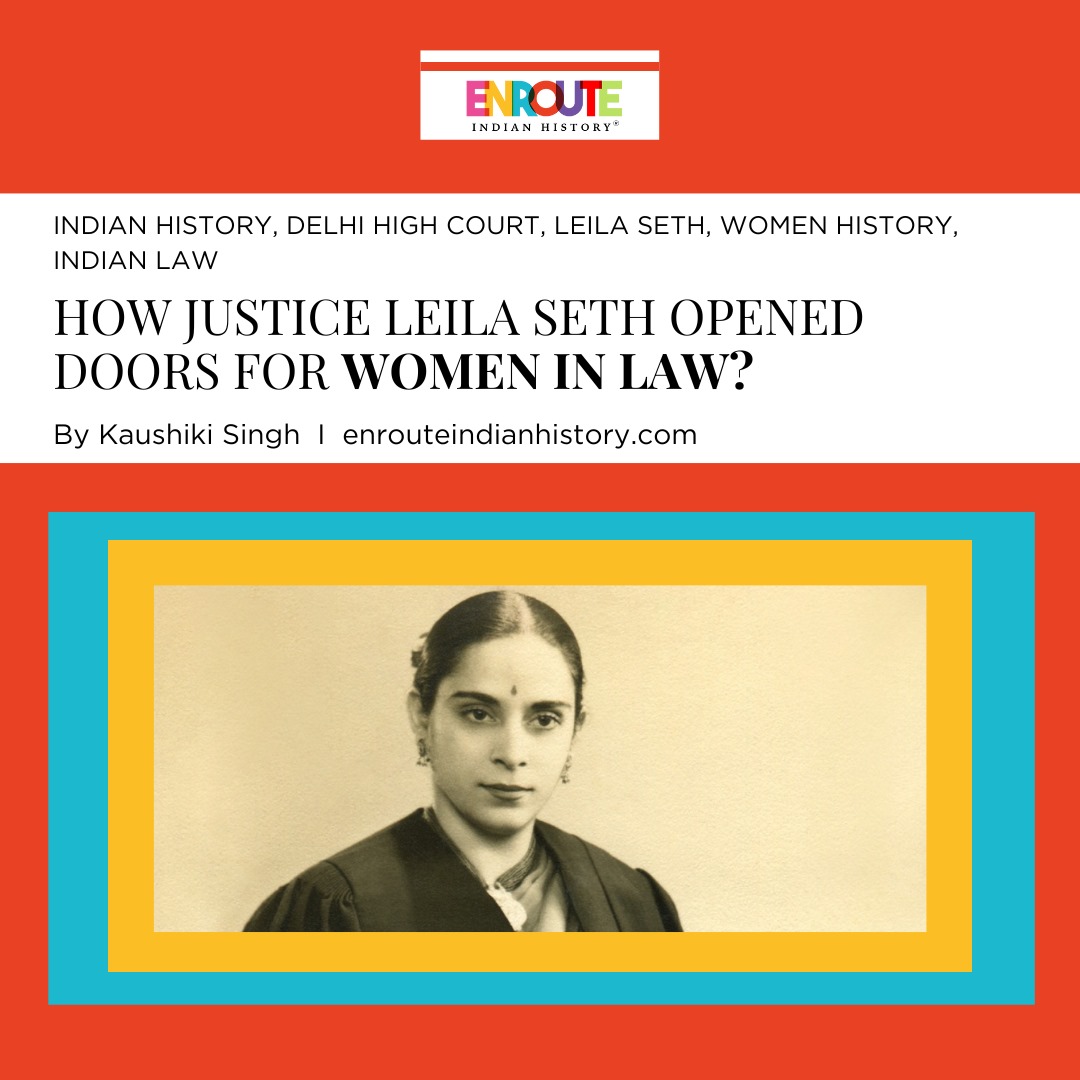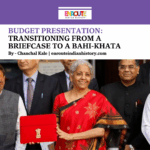
Today, society has adopted the concepts of equality and freedom, thanks to various social movements led by marginalized sections of the population and our country’s constitution, which has firmly laid the foundation for an ideal society. But when we go back to observing events in history, we see that a considerable number is dominated by men, either in power or not. Even though we have few exceptions to many powerful queens who challenged the established framework of the society of that period, it was more or less, patriarchal. Very little light is thrown by the majority of scholars on the lives of women, who, without any doubt, played a significant role in that time. Women were denied education, and power and were meant to engage in household chores and their prime duty included pleasing their husbands. In short, their lives were dictated by the men of society.
This trend continues in today’s time to an extent even though great progress has been made due to more awareness. Compared to the present time, during the initial period after independence, all major sectors of the country, including administration, policymaking, and entrepreneurship, all were male-dominated. It was difficult to find a single woman in the workforce. The same was the scenario for the judicial system of the country. The positions of lawyers and judges were taken up by the men and there was no room for a female. But challenging this patriarchy in 1978, Leila Seth, an ambitious and outspoken woman who was a visionary, not only in her approach to the law but also in all realms of social justice, became the first woman judge of the Delhi High Court. She further became the first female Chief justice of the state High Court in Himachal Pradesh. In this article, you will get to know how Leila Seth is accredited to many ‘firsts’ and has set an outstanding example for all aspiring women.

(Source- Penguin India; Leila Seth, the first woman judge of Delhi High court.)
LEILA SETH’S EARLY LIFE
Leila Seth was born in Lucknow in October 1930 to a family that believed in loving the daughters and valuing them the same as their sons. Her father worked in the Imperial railway service and she shared a very special bond with him. But soon her father died and Seth’s mother became her only source of love and nurturing. Leila completed her schooling at Loreto Convent in Darjeeling. Later on, she worked as a stenographer with the railways in Calcutta.
It was at this period, that she met her future husband, Prem Seth and an arranged marriage took place between them. Leila along with her husband moved to London where her husband was working in the footwear and fashion accessory corporation brand Bata. It was at this moment when Seth realized it as an opportunity to continue her studies but since she was now a mother to an infant, she decided to take up a career that would require her to attend fewer classes. This way, she drove in the direction of becoming a lawyer. Being in London for Leila Seth was a life-changing stage.

(Source- The Quint; Leila Seth and her husband Prem Seth)
CAREER AS A LAWYER
At just a mere age of 27, Leila Seth became the first ever woman to secure first place in the London Bar exam in 1958. Her achievement was noted down in a London newspaper with the headline of the story as “Mother-in-Law”. The article was followed by a picture of her holding her newborn. Some newspapers also showed their dissent toward Seth as a married woman topped the exams. Due to her husband’s transfer, they moved back to India where Seth started practising law and worked for around 10 years in Patna High Court. Here, she had to encounter many gender biases. During the initial years, she wouldn’t get much work just because she was a woman and no client wanted to give their cases to her. During an interview, she recalled an incident where a client would keep insisting on a male lawyer’s opinion on a case that she had worked hard on and she wasn’t even getting paid due to these demands. In all these years, she eventually learnt the harsh truth that all female lawyers were regarded by their gender first and then for their merit. Everyone questioned her competence and expected Leila to take up “women cases” such as divorce cases or other family law related matters, but she was keen on challenging this stigma by proving that she was well enough for any mainstream cases and as good as any other male lawyer. For this, she started working on cases with diverse fields- company law, Civil cases, criminal cases, income Tax, Constitutional law etc. In one criminal case, she was defending an engineer driver who was on the verge of being imprisoned. A man climbed up on the train and died when the train entered a tunnel. But the driver was completely unaware that the passengers were there on the top and was charged with murder. Leila Seth won the case and, unable to pay her complete legal fee, the driver gave her a tin of desi ghee instead.
In 1972, she decided to move to Delhi and started working in the Delhi High court. The matters she dealt included criminal matters, civil petitions, company petitions, revisions, appeals etc. During this time, Seth also started working with the Supreme Court handling taxation matters, civil and criminal appeals, and writ petitions. Through her dedication, she made significant progress in her field that eventually made her the senior advocate by the Apex court. Finally in 1978, Seth was recognized as the first female judge of the Delhi High court. But that did not end the stereotypes that she had to encounter as a “Lady Judge” by other people. At every step, Leila Seth had to deal with sexist thinking and was also rejected a membership in the Delhi Gymkhana Club that was only meant for “male judges”.
The pinnacle was yet to achieve by Seth in her career. This came when in 1991, Justice Leila Seth became the first female judge to be appointed as a Chief Justice of a State High court in Himachal Pradesh. She said, “They were not used to a woman sitting on their head. But as I was a mother of two sons, I know how to handle men sensitively.”
NOTABLE ACHIEVEMENTS

(Source- Hindustan Times; Justice Leila seth)
Leila Seth chaired a number of judicial and humanitarian institutions. In 1995, she was appointed as a one-member commission to inquire into the custodial death of Rajan Pilai. From 1997 to 2000, she played a lead role in the 15th Law Commission of India. Being a strong advocate for the equal opportunities for women, Seth’s efforts have been immense in amending the Hindu Succession Act that ensured equal inheritance rights for daughters in their joint family property. In her commitment to human rights, she was the chair of the Commonwealth Human Rights Initiative for many years. Seth made notable judgments in cases like Shakuntala Kumari vs. Om Prakash Ghai that held the act of threatening to commit suicide by a wife could be considered a form of cruelty towards her husband. Justice Seth played an important role in the three panel members of the Justice Verma Committee that was setup following the aftermath of Delhi Gangrape of 2012 to look into the intricacies of rape law in the Nation. She opposed the Supreme Court’s verdict in the Nazi Foundation Case that overturned the judgement of Delhi high Court amending section 377 of IPC.
Justice Seth has also authored many books through which she continues to inspire many women even after her death in 2017. Her autobiography, On Balance (2005), reflects her journey in the legal field and how she balanced her career and family together. Another book, We, The Children of India, talks about her dedication towards education. In Talking of Justice that was published in 2014, she dived into many sensitive matters that she dealt with throughout her career including topics such as the well-being of young girls, violence against women, advocating women’s rights, ensuring prisoners’ rights, promoting gender awareness etc.
Justice Leila Seth has set an incredible example in front of many women to work towards achieving their dreams and aspirations. She reflected a perfect model for being bold, courageous and loving and caring at the same time. Along with her career, she handled her family with equal love and never shied from fulfilling her responsibilities as a wife and a mother. Her contribution in the legal field has, no doubt, helped in making laws that safeguard the rights of many marginalised sections in the country. Breaking all the shackles of gender inequality that existed during the time when Seth decided to become a lawyer, the journey was tough and at some moment, seemed impossible but through her hard work and resilient nature, she created a space for future women to showcase their talents as well. So that all women should have an equal chance in every field of work like men.
REFERENCE
- https://artsandculture.google.com/story/meet-leila-seth/_QUhq8fYpdYyNA?hl=en
- https://www.barandbench.com/columns/women-of-the-indian-judiciary-justice-leila-seth
- https://www.thehindu.com/news/cities/Delhi/leila-seth-delhi-high-courts-first-woman-judge-passes-away/article18400429.ece
- ttps://www.peepultree.world/livehistoryindia/story/people/justice-leila-seth
- https://feminisminindia.com/2017/07/18/justice-leila-seth-tribute/



















